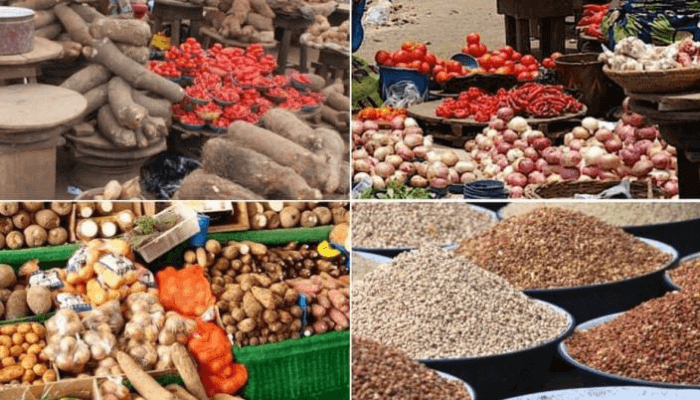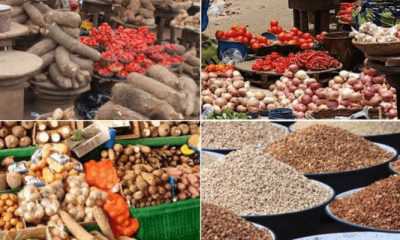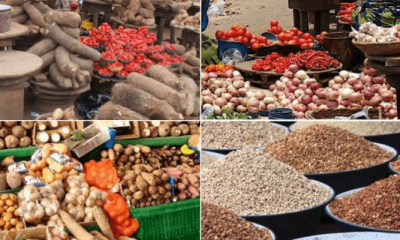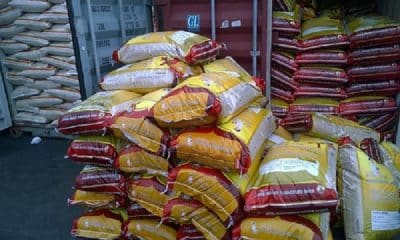Business
Price Of Bag Of Rice, Beans, Tomatoes, Other Food Commodities This Week

As of February 7, 2025, Nigeria continues to grapple with significant increases in food prices, affecting essential commodities such as rice, beans, and tomatoes.
These surges are attributed to a combination of economic challenges, including high inflation rates, currency devaluation, and disruptions in agricultural production due to security concerns and adverse weather conditions.
Current Prices of Key Food Commodities:
Rice: A 50kg bag of rice is currently priced between ₦75,000 and ₦90,000.
Beans: A 50kg bag of beans sells between ₦78,000 and ₦85,000
Tomatoes: A basket of tomatoes is selling for approximately ₦55,000.
Yam: Each tuber of yam ranges from ₦3,000 to ₦4,000, depending on size and quality.
Palm Oil: A 25-litre container of palm oil is available for about ₦50,000.
Chicken: The price for 1kg of chicken meat is around ₦5,000.
Factors Contributing to Rising Food Prices:
Inflation: Nigeria’s inflation rate has been on an upward trajectory, reaching a near 30-year high of 34.8% in December 2024. Food inflation, in particular, stood at 39.84% during the same period, driven by higher costs of staple foods.
Currency Devaluation: The devaluation of the Naira has increased the cost of imported goods and agricultural inputs, further escalating food prices.
Agricultural Challenges: Insecurity in key farming regions and adverse weather conditions, such as flooding, have disrupted agricultural activities, leading to reduced crop yields and supply shortages.
Government Initiatives and Outlook: In response to the escalating food prices, the Nigerian government has proposed tax reforms aimed at curbing inflation. These reforms include plans to nearly double the value-added tax (VAT) to 12.5% by 2026 while exempting essential items like food and medicine to lower costs for most households.
The persistent increase in food prices poses significant challenges for Nigerian households, particularly those with lower incomes, as they allocate a substantial portion of their earnings to food expenses.
Continuous monitoring of these trends is essential to inform policy decisions and implement effective interventions to mitigate the impact on food security.








